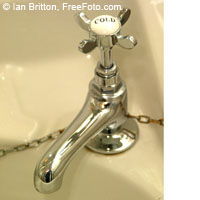Improving Europe's drinking water
A new European project aims to increase our knowledge of water borne diseases and so help to improve the quality of drinking water in Europe. The problem of dirty drinking water is often associated with poorer developing countries, but the quality of drinking water in many European countries leaves much to be desired. 'We suspect that contaminated water causes more illnesses than generally believed,' said Dr Manfred Höfle of the Helmholtz Centre for Infection Research, and coordinator of the new 'Healthy Water' project which is funded by the EU's Sixth Framework Programme (FP6). The problem is that there are still many gaps in our knowledge of what microbes are present in European drinking water and their effects on human health. 'We currently only determine one particular bacteria count, and that is E. coli,' explained Dr Höfle. 'We know virtually nothing about the frequency of other bacteria, viruses, or so-called protozoa, which are single-cell animals.' Dr Höfle and his colleagues have already developed an 'aqua-chip' which has already proved effective at detecting bacterial pathogens in water. Now the project partners hope to make the chip sensitive to protozoa and viruses. The researchers will also carry out an epidemiological study to identify factors that could suggest a correlation between infections and unclean drinking water. 'So far we do not have this kind of structured data in Europe,' noted Dr Höfle. 'We think this will give us some indication which pathogens we should pay particular attention to when developing the chip.' Ultimately, the project partners hope that the knowledge generated by the project will help to improve the quality of drinking water and so reduce the burden of waterborne infections in Europe.
Countries
Austria, Germany, Spain, France, Hungary, United Kingdom



